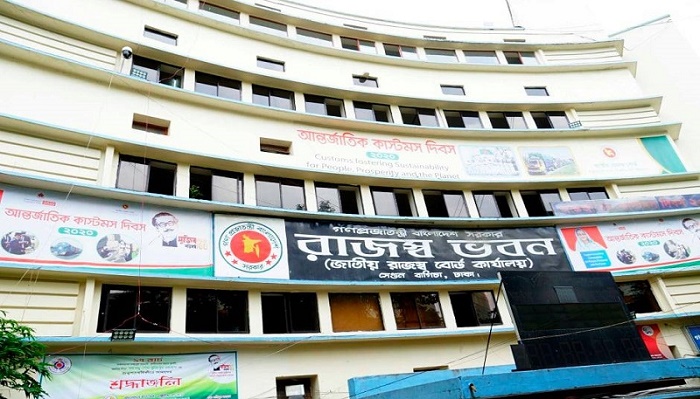The government appears to have taken a tough stance against the misuse of the bond facility to prevent evasion of import duty and safeguard the local manufacturing sector.
In a recent move, the Customs Bond Commissionerate of Dhaka has suspended the bond licences of 125 name-only companies as they were found to be illegally selling duty-free materials in open in a sheer abuse of the bond facility.
Sources at Dhaka Customs Bond Commissionerate said in a recent audit they have identified more than 362 companies abusing the bond facility.
The Commissionerate is now determining the liabilities and other facts to revoke their licences at the earliest possible time. Of the 362 firms, the Commissionerate would scarp the bond licences of 92 companies in the next few weeks, sources said.
Md. Shawkat Hossain, Commissioner of Customs Bond Commissionerate, said they are taking actions against the bond licence abusers which will continue in coming days.
Officials of the Commissionerate have been asked to inspect the companies while renewing the bond licence and regular drive is also undergoing against the bond facility abusers, he added.
Mentioning the details of bond misuse, Dhaka Customs Bond Commissionerate prepared a report which was sent to the National Board of Revenue (NBR) recently. The report made several recommendations to prevent misuse of bond licence in the country.
According to the report, the recommendations include introducing export general manifesto on ASYCUDA world system, full implementation of ASYCUDA world system in EPZs, the imposition of utilization declaration (UD) and strengthening the Commissionerate purview.
Bond licence means a warehouse facility provided to export-oriented industries for importing raw materials and packaging materials without paying any duty or taxes. The National Board of Revenue (NBR) provides Bonded Warehousing benefits to a wide range of industries to encourage export-oriented industrialization and facilitate exports.
But some unscrupulous businesspersons take bond licence in the name of non-existent companies and sell the imported raw materials in the open market. Secondly, some business entities import more raw materials than their need to sell the surplus quantity in the open market.
Bonafide entrepreneurs and local products are exposed to an uneven competition due to the sale of imported goods at low price violating the terms of the bond facility.
Sources at the National Board of Revenue said writing paper, duplex board, art card, plastic and packaging materials, and fabrics, RMG accessories like zipper, button and hanger are the main items sold in the local markets after being imported under the bond facility.
The volume of government’s revenue loss is much higher as various imported raw materials and goods are being sold in the open market.
According to the report of the Bond Commissionerate, currently, 6,684 licensed companies have bond licences. Till June of last fiscal, the government had suspended around 2503 companies’ bond licence, which stands now at 3640 including 1,337 in current fiscal.
Besides, 614 institutions have not been audited for more than three years and the Business Registration Number (BIN) of these organizations has been locked.














